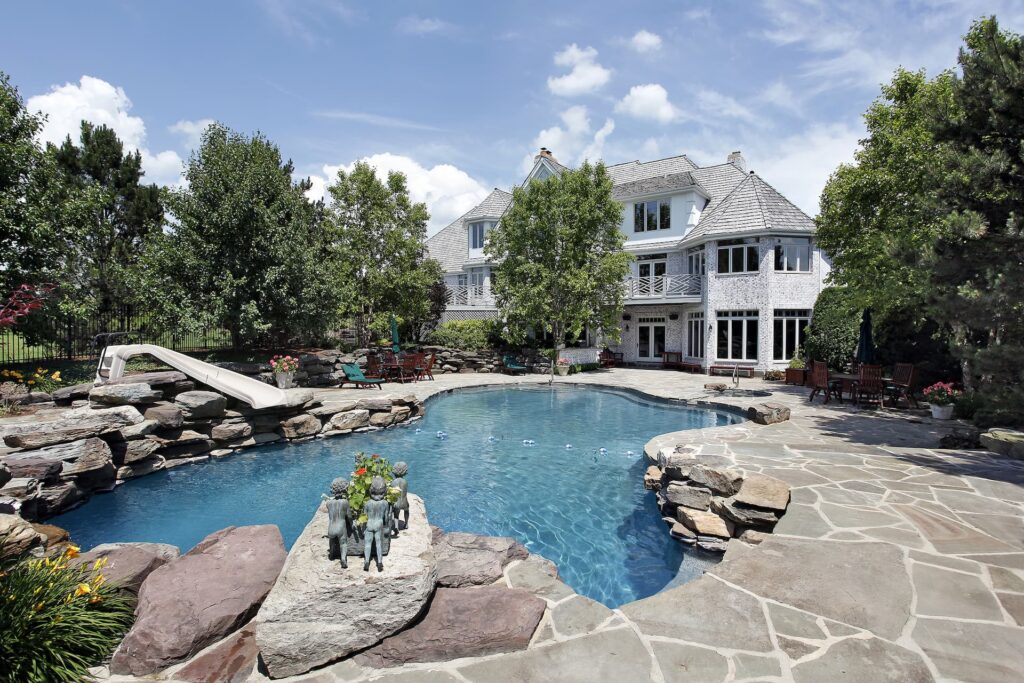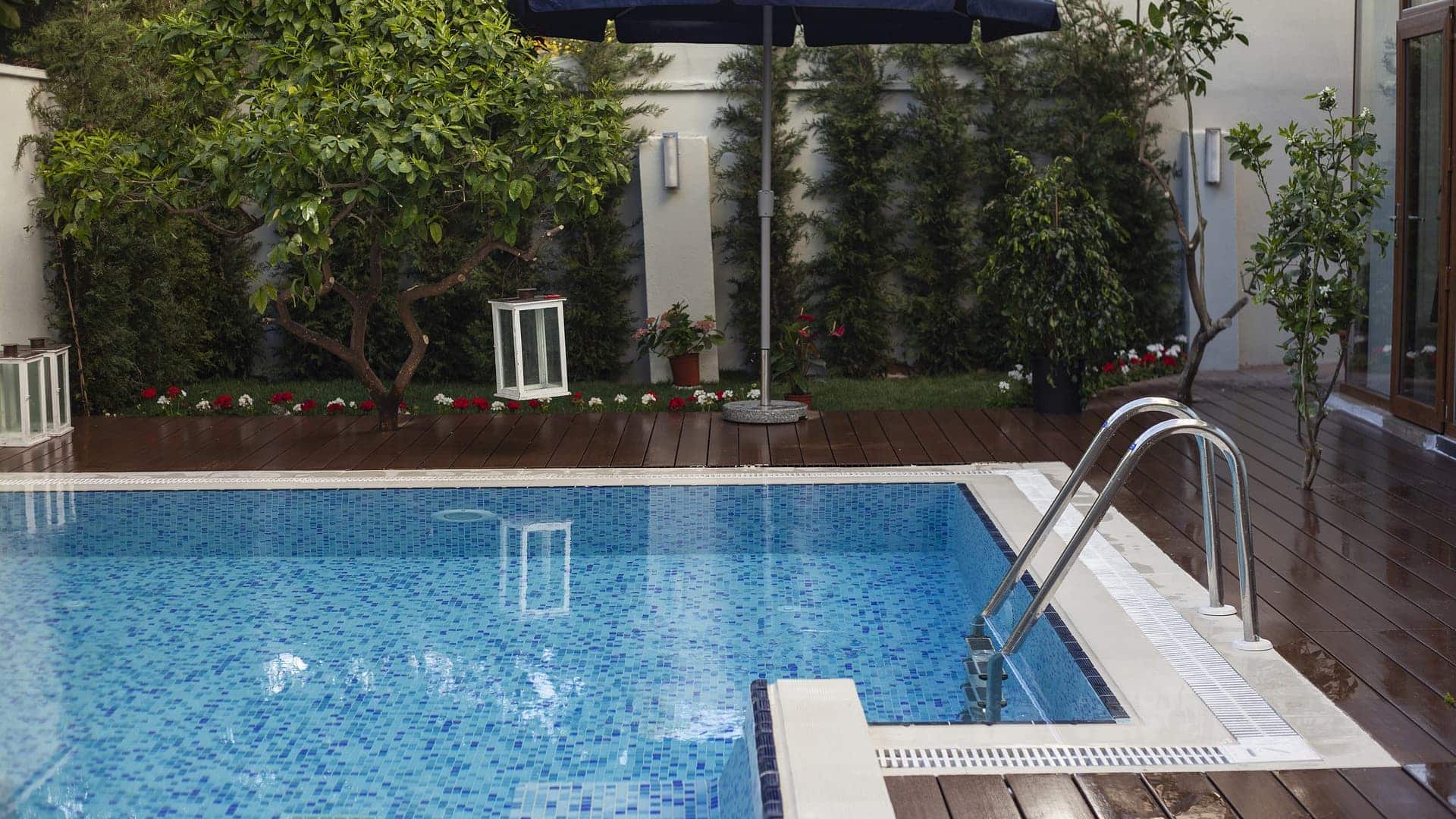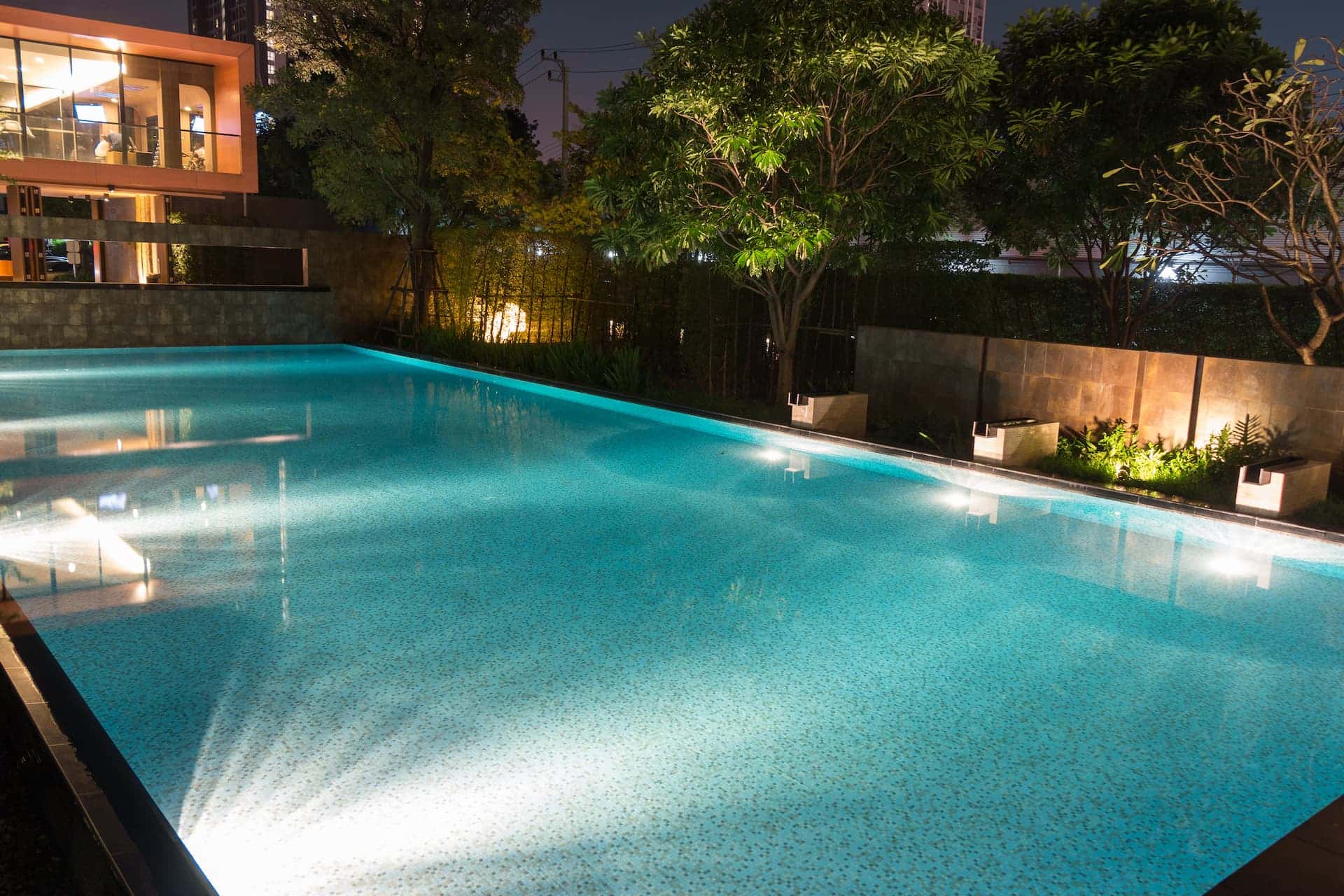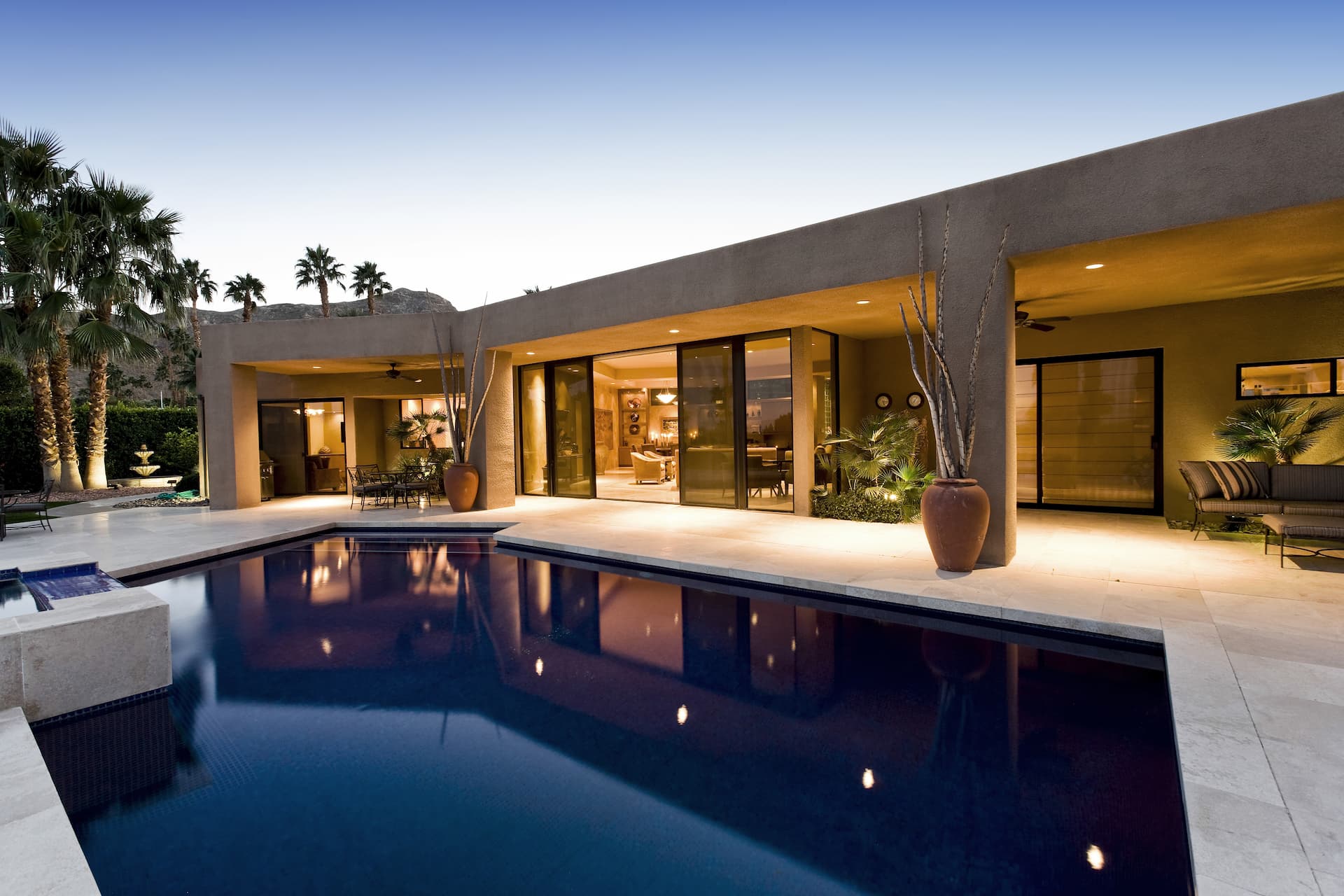Are you ready to design your ideal backyard oasis? Adding an inground pool at home is a thrilling experience. There are such wonderful choices to make – from choosing the perfect pool type to all of those specialty finishing touches. And not only will you have a beautiful space at home, you’ll also have a prime location to host all your friends and family.
Inground pools provide an array of benefits that promote a healthier lifestyle, increase family fun, and add a stunning focal point to your beautiful backyard space. Your pool choices come in a glorious range of shapes, sizes, or materials. And when you choose just the right pool for your home, it can prove to be a worthy investment. Benefits may include added value to your home, an improvement in fitness and health, and the premier location to strengthen your relationships. And if you have kids, they will definitely adore it!
How to Finance an Inground Swimming Pool
When you need funding for your vision of a backyard retreat, there’s only one place to turn. HFS Financial is your premier ally for the best pool loan for your upcoming project. With over six decades of industry-leading experience, we are here to help you with the loan options you need to turn all your pool dreams into reality.
Are you ready to get started? Let’s explore some of the best info on inground pools. Then, all you need to do is check your rate for inground pool loan options. There’s no impact on your credit, and it can help you get a good idea of how much you qualify for and what type of pool is best for your home.
What Are Inground Swimming Pools?
Inground pools are a type of pool that is installed in the ground with the purpose of being a permanent structure. Step right from your deck or patio into a pool of sparkling water that is cool and refreshing. Not only will your inground swimming pool be easy to access, it will be the glittering crown jewel of your beautiful backyard.
Benefits of Inground Pools
Although there are almost endless benefits to having a pool at home, there are some notable perks that stand out. Inground swimming pools are built to last. Using quality materials and advanced technology, pool builders today offer sensational options for getting you the best backyard pool for your yard and features.
Inground pools also have the benefit of low-impact exercise and can even be used for hydrotherapy. From swimming to aquatic fitness equipment and in-pool sports, the sky’s the limit on ways that a swimming pool can enhance your fitness goals.
Are you looking for a little sparkle and shine when you peek out your back window? An inground pool can beautify your backyard, being an attraction that supports lounging, relaxation, fitness and fun. It can also improve your landscape and add value to your home. Unlike above-ground pools, inground pools tend to last for decades, giving you a resort-like experience in the comfort of your own home.
Things to Consider
An inground pool, as it’s a permanent structure, is actually a major investment. That’s why choosing a qualified pool builder is key. Research the pool builders in your area, read reviews, look at online galleries of completed projects, and ask for references. Your due diligence in the planning phase of your project will help you find the right builder to make all your backyard dreams come true. And when it’s time to pay for your new investment, HFS Financial will be here with the financing you need to hire the builder that’s right for you.
Types of Inground Pools
If you’re certain you want to get an inground pool, the next step is to consider what type of pool you would like to install. The benefit of inground pools is that, as they’re permanently built into the ground, you can choose from a variety of materials, shapes, and sizes. Generally, there are three basic types to choose from: vinyl, fiberglass, or a concrete pool such as gunite or shotcrete. With benefits to each option, here’s some more information to help you make the right choice.
Vinyl
Vinyl pools are a wonderful option for your inground oasis. A bonus to a vinyl-liner pool is that it can be customized to fit different shapes or sizes. Today’s vinyl options have come a long way in the past few years. You’ll find options featuring mosaic borders, stunning patterns, gorgeous color choices, and even prints that look like concrete or tile. You’ll usually replace the liner about every ten years, but this can help your pool always look up-to-date with the latest design trends.
Fiberglass
Fiberglass pools are made to order and are shipped in one piece from the factory to your home. Installed quickly, fiberglass pools offer a wonderful way to get a pool with a custom look. And with the simplicity of one-piece installation, they install quickly and easily.
A fiberglass pool is low maintenance due to the smooth surface of the pool. With no creases or crevices for algae to hide, you’ll quickly find that these are an owner’s dream. However, unlike vinyl and concrete pools, fiberglass inground pools have fewer options for shapes and sizes. They are still grand enough that you’ll have a spacious place for everyone to swim and play and there are incredible shapes, sizes, and amenities like tanning ledges and in-pool seating to choose from.
Concrete Inground Pool
Concrete pools have a bit of variety, as they can be installed with gunite or shotcrete. Additionally, concrete can be finished with plaster, tiles or stones. Concrete pools are the most durable and customizable out of all the types of pools available. While they’ll take longer to install than the other kinds of pools, they’re definitely worth it.
If you already know you will be staying in your home long term and want to have a permanent pool for as long as possible, a concrete pool might be your best bet.
Concrete, Gunite, and Shotcrete
So what’s the difference between a gunite and a shotcrete pool? Gunite and shotcrete’s differences are quite simple – it’s all about the process. Shotcrete refers to wet mixes that are fully mixed before being shot out of a hose. Gunite, on the other hand, while also getting shot out of a hose, tends to be a dry mix. It is only mixed with water at the end as it’s applied onto the rebar and surface as the pool starts to form its shape. Both are great options, but research which one is best for your needs. You can find more information on each type of pool at The Consumer’s Guide Through the Swimming Pool Buying & Building Process.
What Else Should You Consider?
Before you decide which type of inground pool to build, you should consider a few important things. First, how long do you plan to be in your home? An inground pool is a large, long-term investment, and a permanent addition that you want to enjoy. You should also consider what type of shape or size you’d like, as this can make the actual material choices vary. A good idea is to do your own research and look at images of all the different types. Once you have made your decision, it’s time to get the financing you need for your exciting new pool adventure!
How Can HFS Financial Help With Inground Pool Financing?
HFS Financial can get you loan options for all types of inground pools, including fiberglass, vinyl liner, concrete, shotcrete, and gunite. With our quick, 60-second inquiry, you can start the process of discovering your own incredible backyard transformation. HFS Financial exists to fill several notable gaps in the inground pool financing sector. Our reviews page can help you see just how wonderful working with HFS can be. Want to know more?
First, we never require homeowners or pool installers to settle for small payments issued at different stages of the build process. You can get the swimming pool loan you need upfront. There’s no more hassle with stage funding that requires approvals and another stage of funding. By having all of your money when you need it, you are able to pay the contractor the required payments during the construction process with no hassle. And with unsecured loan options for inground swimming pools, you’ll never have to tie up your home or other assets as collateral.
Additionally, we offer large max loan amounts that require far less paperwork and red tape than banks offering refinancing or home equity loans.
Don’t forget all of the other amenities and accessories you need for your pool area. Apply for an inground pool loan large enough to cover your poolside furniture, fencing, pool decking, in-pool sports, landscaping, and everything else you need to make your backyard comfortable and inviting.
Planning, designing, and building a new inground swimming pool is complicated enough. Obtaining financing for an inground pool shouldn’t be. If you’re ready to invest in an inground pool, HFS Financial can help.
Apply today on our safe, secure website and move one step closer to your dream backyard with the best inground pool loans today! Our 60-second inquiry does not affect your credit score. Your perfect pool awaits. With HFS Financial, “You Dream It, We Finance It.”







